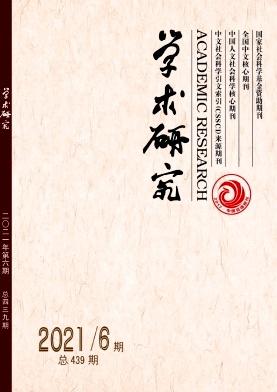综合性高校“95后”大学生心理健康追踪研究及思考 ——以长江大学为例
引用次数: 0
Abstract
目的:了解综合性高校“95后”大学生群体的心理健康及其发展状况。方法:以长江大学2013级至2016级28512名学生为研究对象,在各年级进校时采用SCL-90和16PF进行测评,在其大二下学期时再次进行SCL-90测评。结果:(1)“95后”大学生大一入校时SCL-90检出率排名前三的因子是强迫症状、人际关系敏感和抑郁,大二下学期时检出率排名前三的因子是强迫症状、人际关系敏感和其他。(2)学生入校一年半后,SCL-90总分和强迫症状、人际关系敏感、抑郁、焦虑、敌对、恐怖、偏执、精神病性8个因子的得分均呈现显著下降(p<0.001)。(3)16PF测评结果既没有呈现出低分特征(1-3分),也没有呈现出高分特征(8-10分)。 Objective: To understand the mental health and development of “after-95” college students in comprehensive colleges and universities. Methods: A total of 28512 students from class 2013 to class 2016 in Yangtze University were selected as subjects of study, and evaluated twice by SCL-90 and PF16. Results: (1) The top three factors of SCL-90 detection rate of afterr-95 freshmen were obsessive-compulsive symptoms, interpersonal sensitivity and depression. The top three factors in the second semester of sophomore year were obsessive-compulsive symptoms, interpersonal sensitivity and others. (2) After one and a half years of enrollment, the total score of SCL-90 and eight factors, including compulsive symptoms, interpersonal sensitivity, depression, anxiety, hostility, terror, paranoia and psychosis, decreased significantly (p < 0.001). (3) The results of 16PF showed neither low score (1-3 points) nor high score (8-10 points).综合性高校“95后”大学生心理健康追踪研究及思考 ——以长江大学为例
目的:了解综合性高校“95后”大学生群体的心理健康及其发展状况。方法:以长江大学2013级至2016级28512名学生为研究对象,在各年级进校时采用SCL-90和16PF进行测评,在其大二下学期时再次进行SCL-90测评。结果:(1)“95后”大学生大一入校时SCL-90检出率排名前三的因子是强迫症状、人际关系敏感和抑郁,大二下学期时检出率排名前三的因子是强迫症状、人际关系敏感和其他。(2)学生入校一年半后,SCL-90总分和强迫症状、人际关系敏感、抑郁、焦虑、敌对、恐怖、偏执、精神病性8个因子的得分均呈现显著下降(p<0.001)。(3)16PF测评结果既没有呈现出低分特征(1-3分),也没有呈现出高分特征(8-10分)。Objective: To understand the mental health and development of “after-95” college students in comprehensive colleges and universities. Methods: A total of 28512 students from class 2013 to class 2016 in Yangtze University were selected as subjects of study, and evaluated twice by SCL-90 and PF16. Results: (1) The top three factors of SCL-90 detection rate of afterr-95 freshmen were obsessive-compulsive symptoms, interpersonal sensitivity and depression. The top three factors in the second semester of sophomore year were obsessive-compulsive symptoms, interpersonal sensitivity and others. (2) After one and a half years of enrollment, the total score of SCL-90 and eight factors, including compulsive symptoms, interpersonal sensitivity, depression, anxiety, hostility, terror, paranoia and psychosis, decreased significantly (p < 0.001). (3) The results of 16PF showed neither low score (1-3 points) nor high score (8-10 points).
本文章由计算机程序翻译,如有差异,请以英文原文为准。
求助全文
约1分钟内获得全文
求助全文

 求助内容:
求助内容: 应助结果提醒方式:
应助结果提醒方式:


